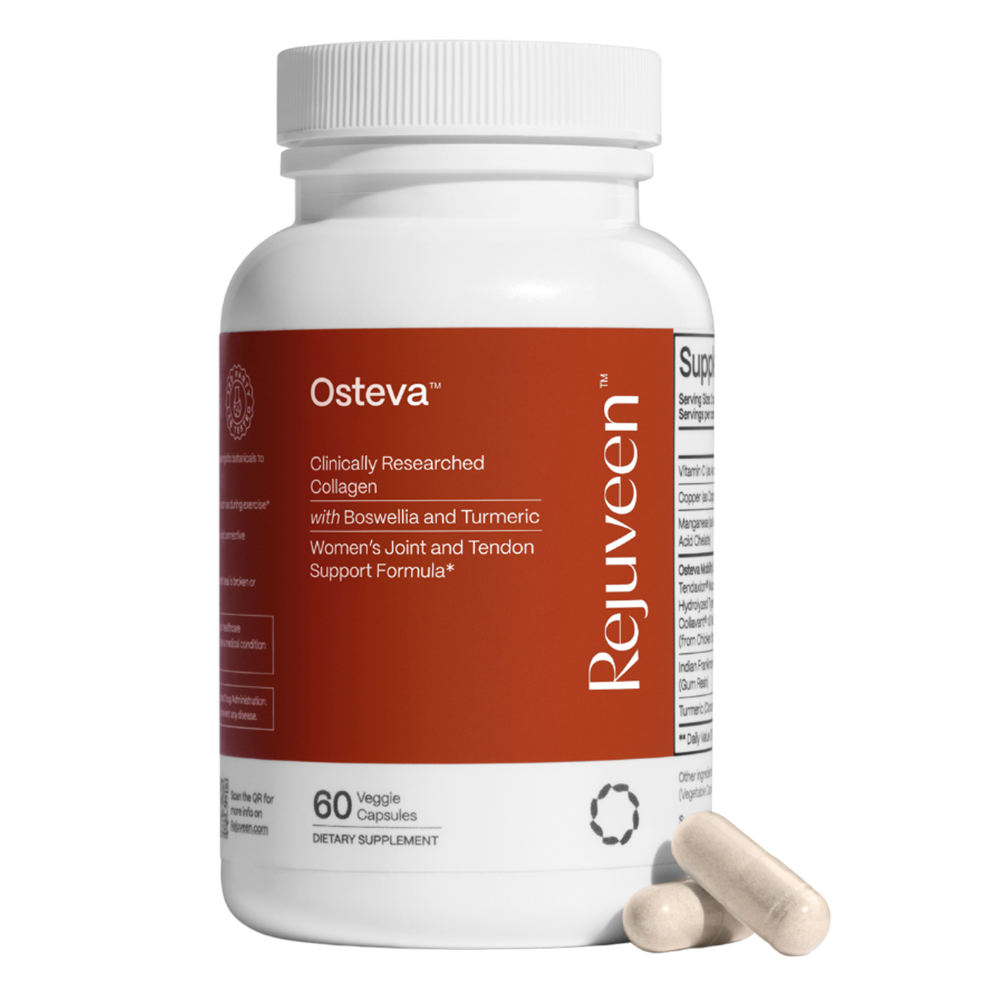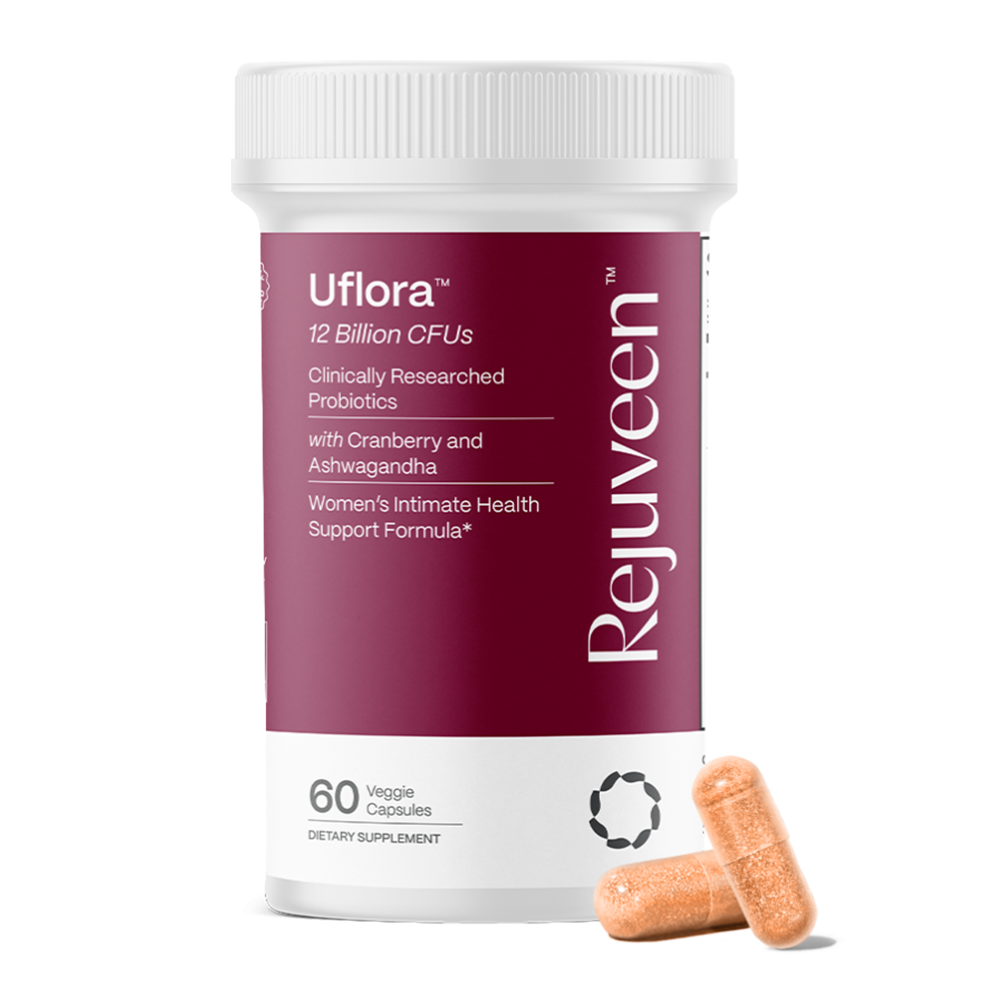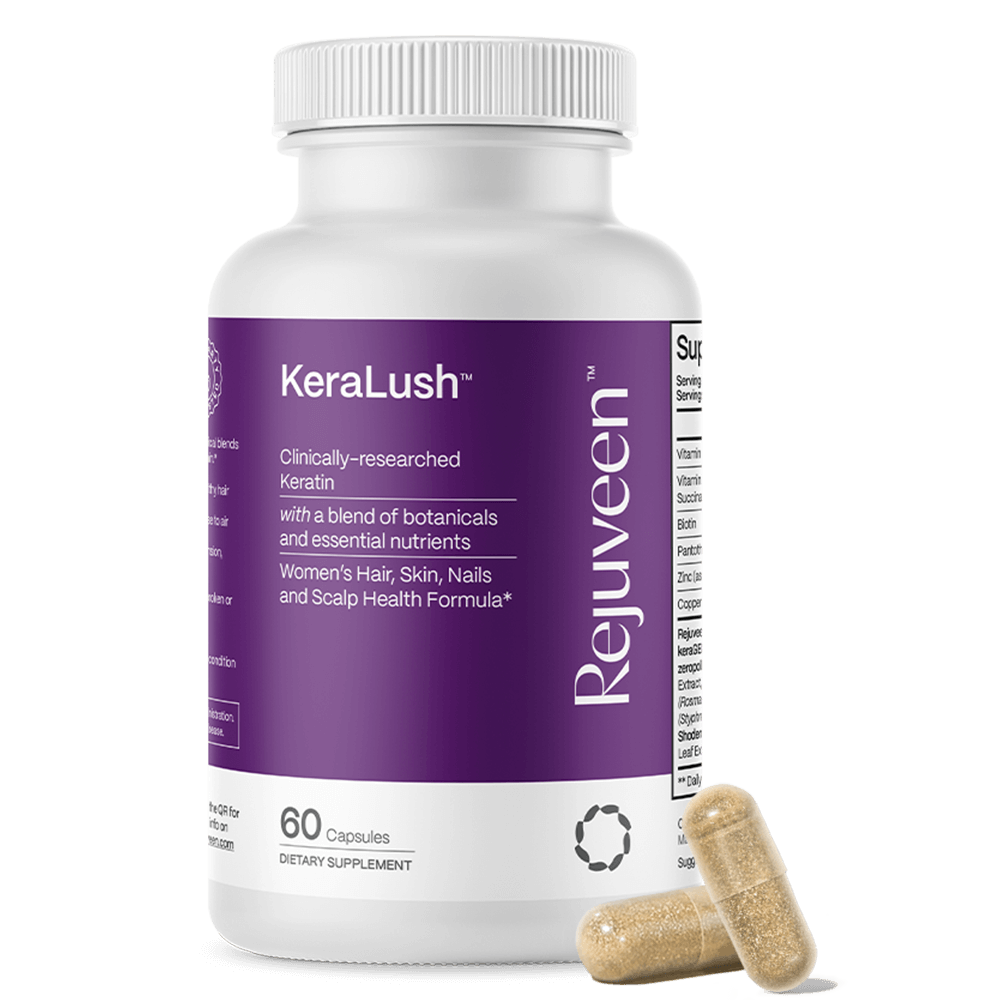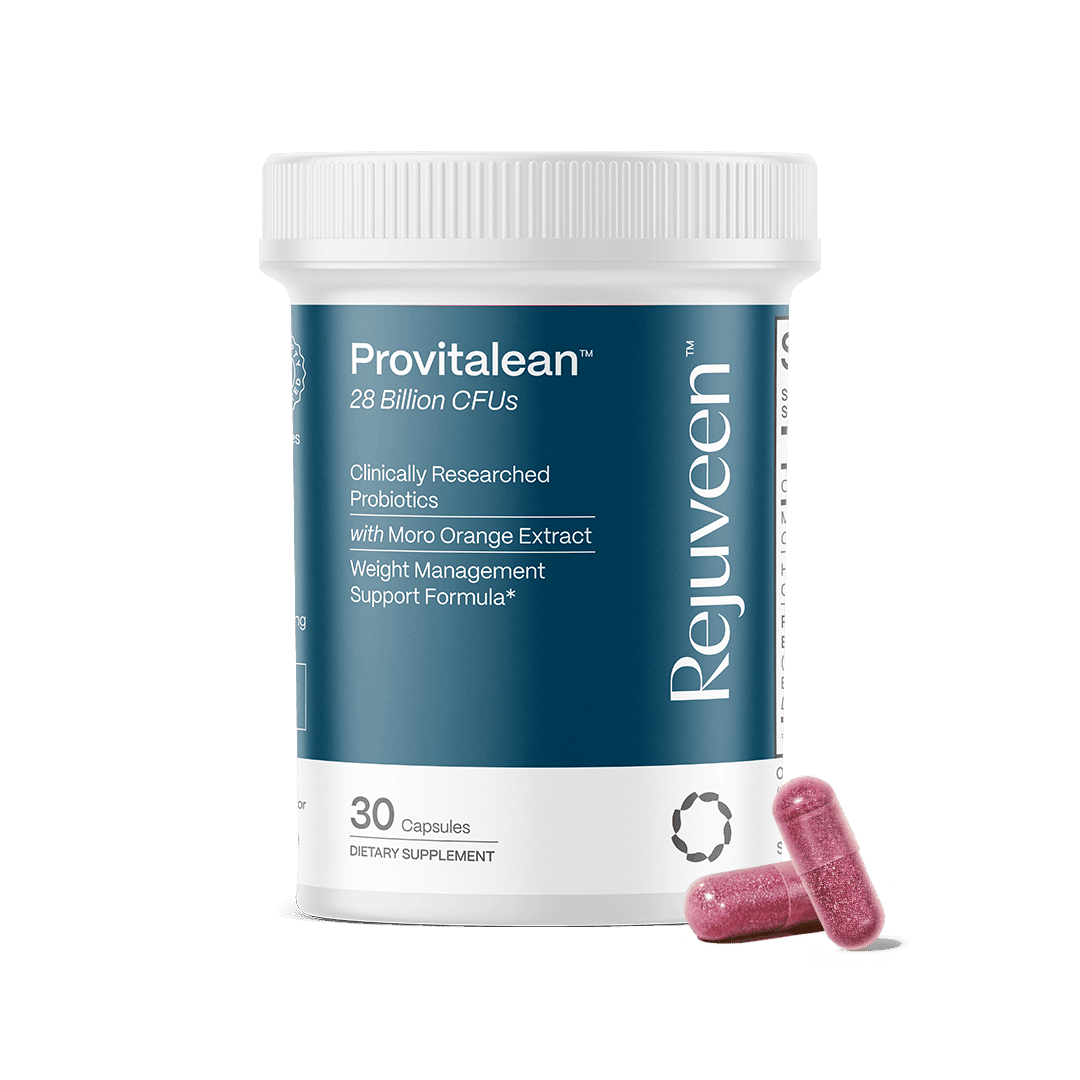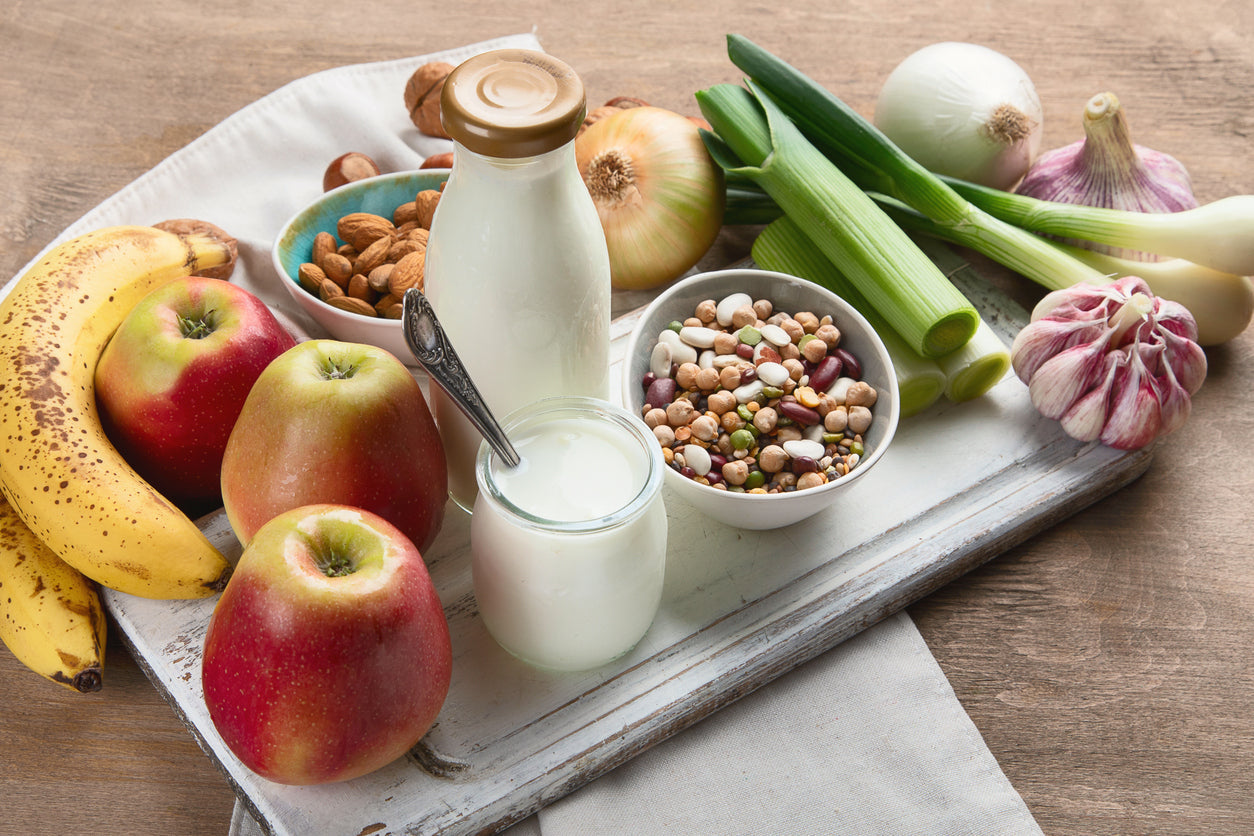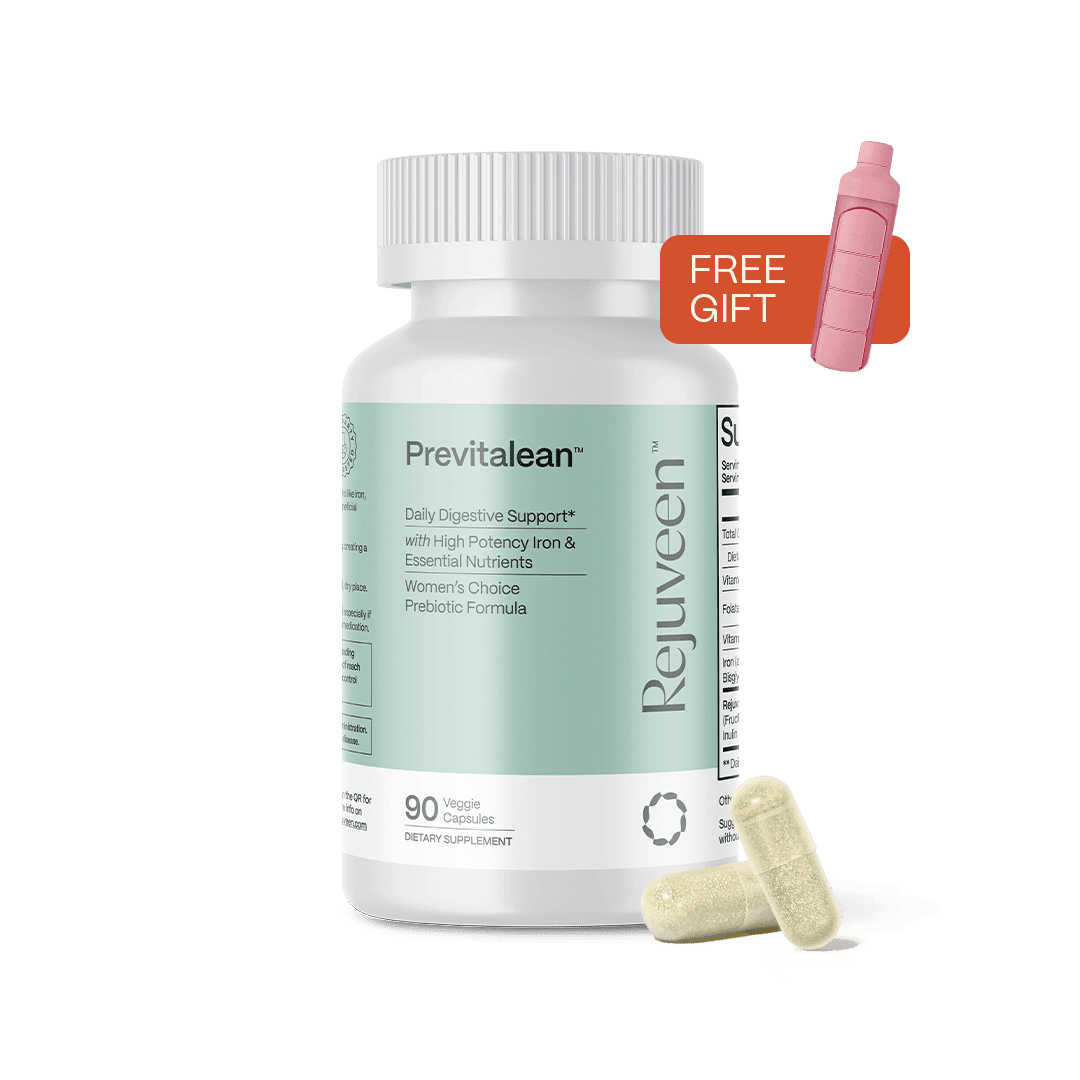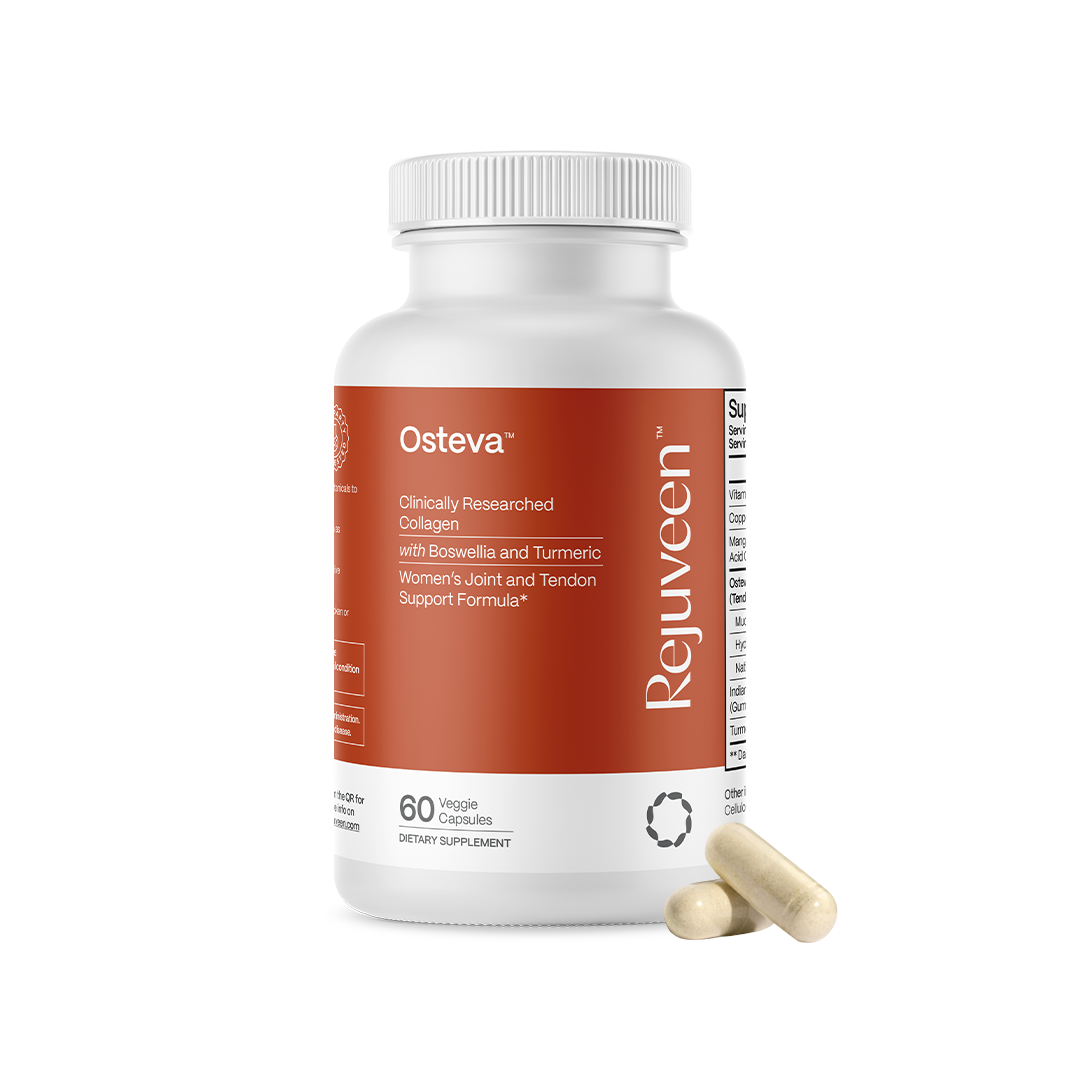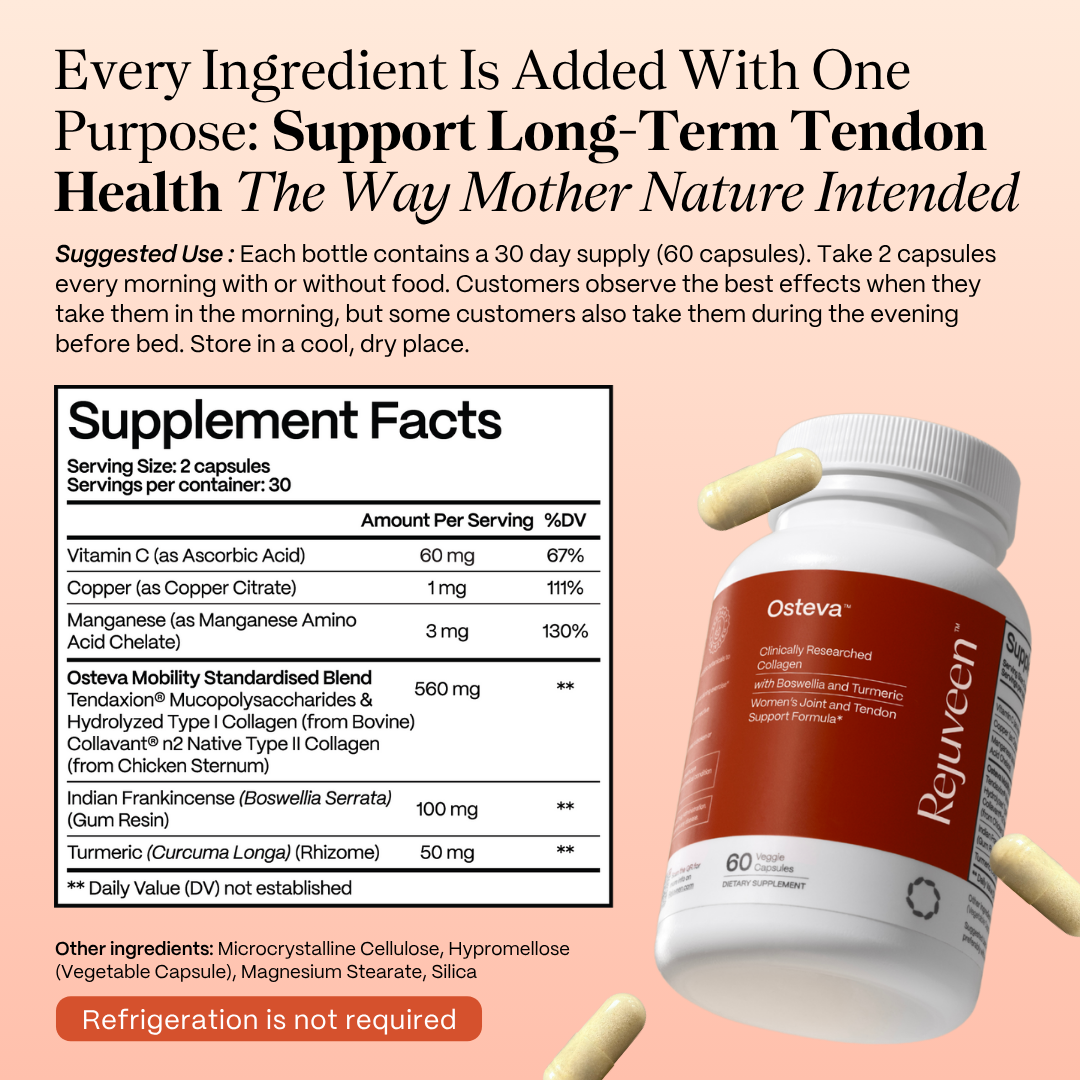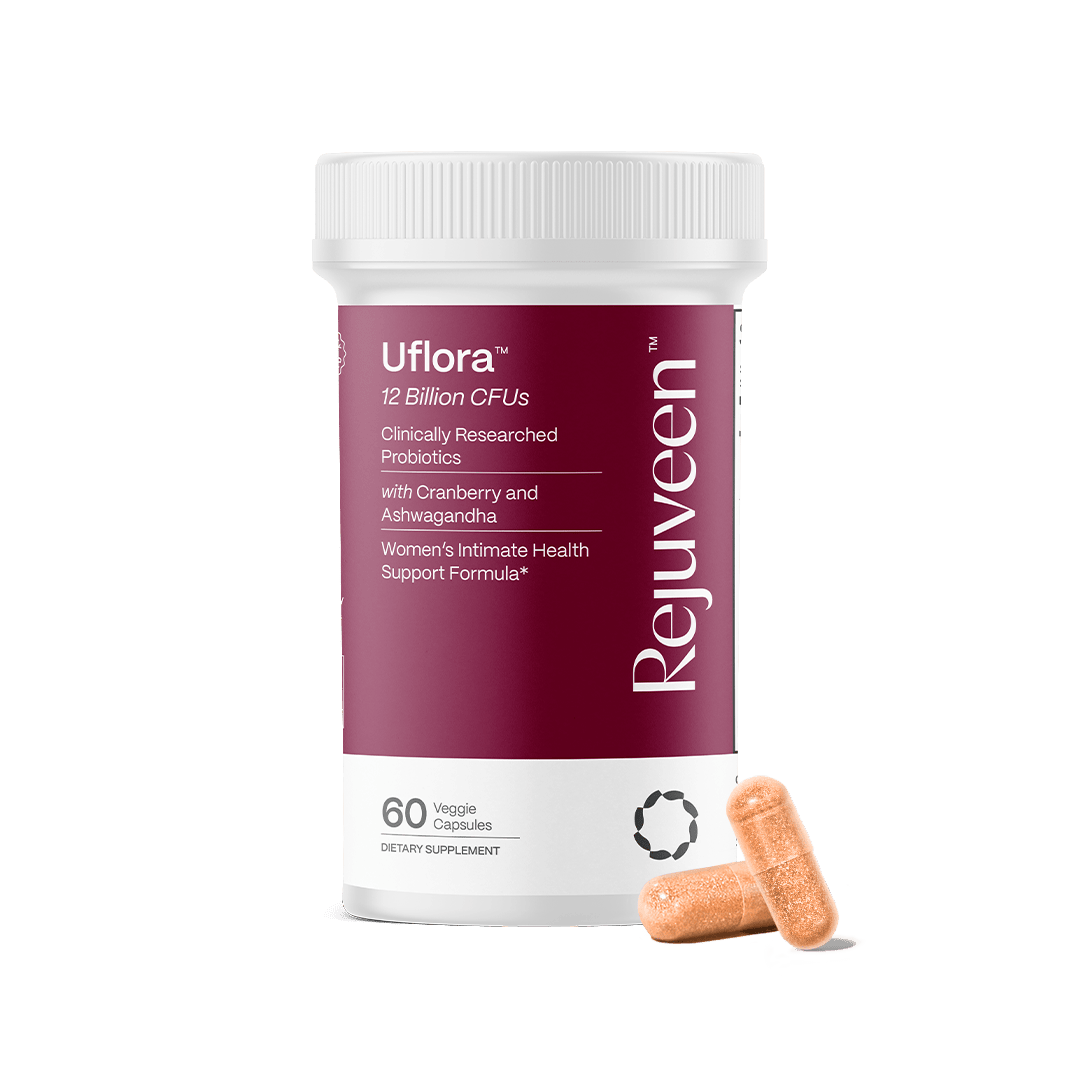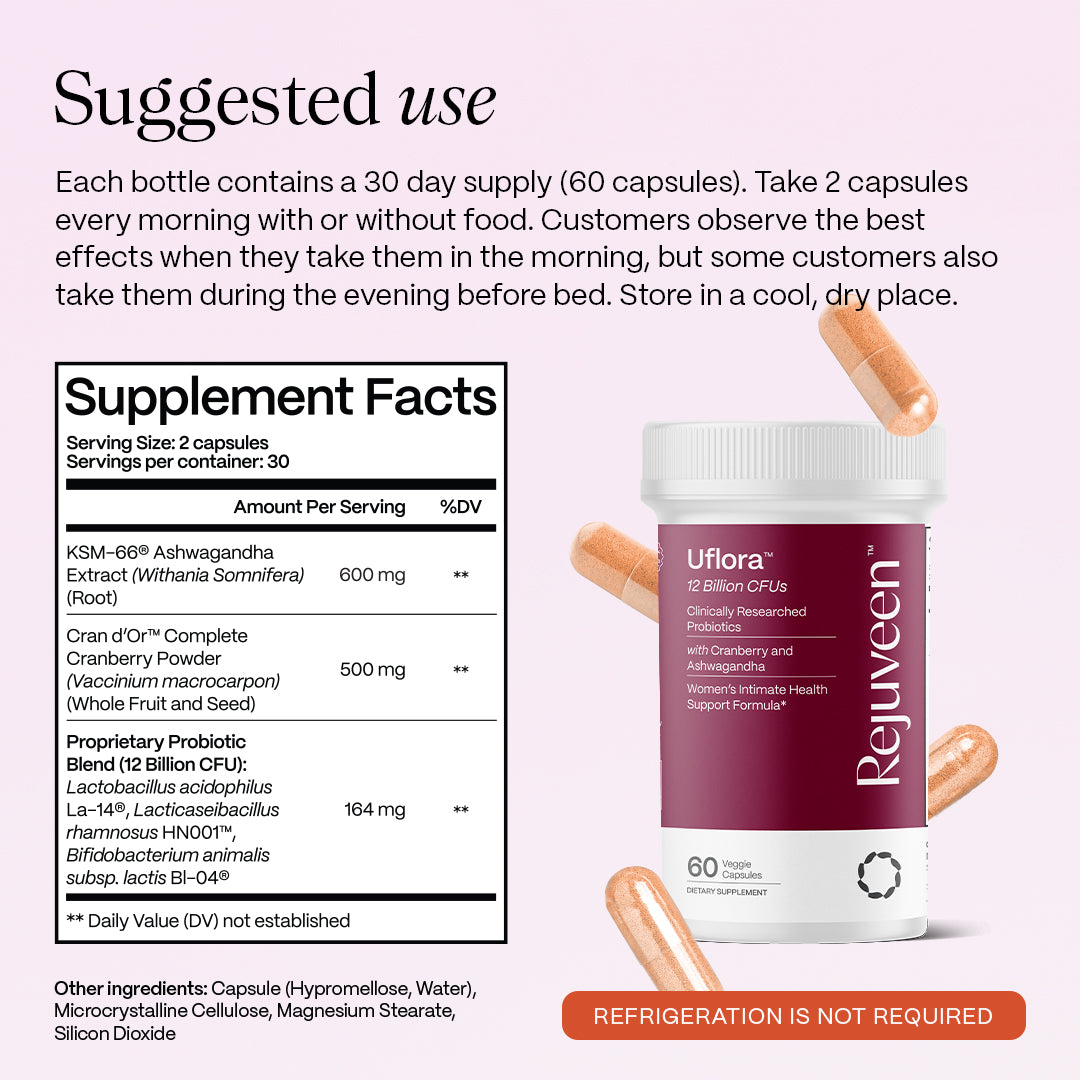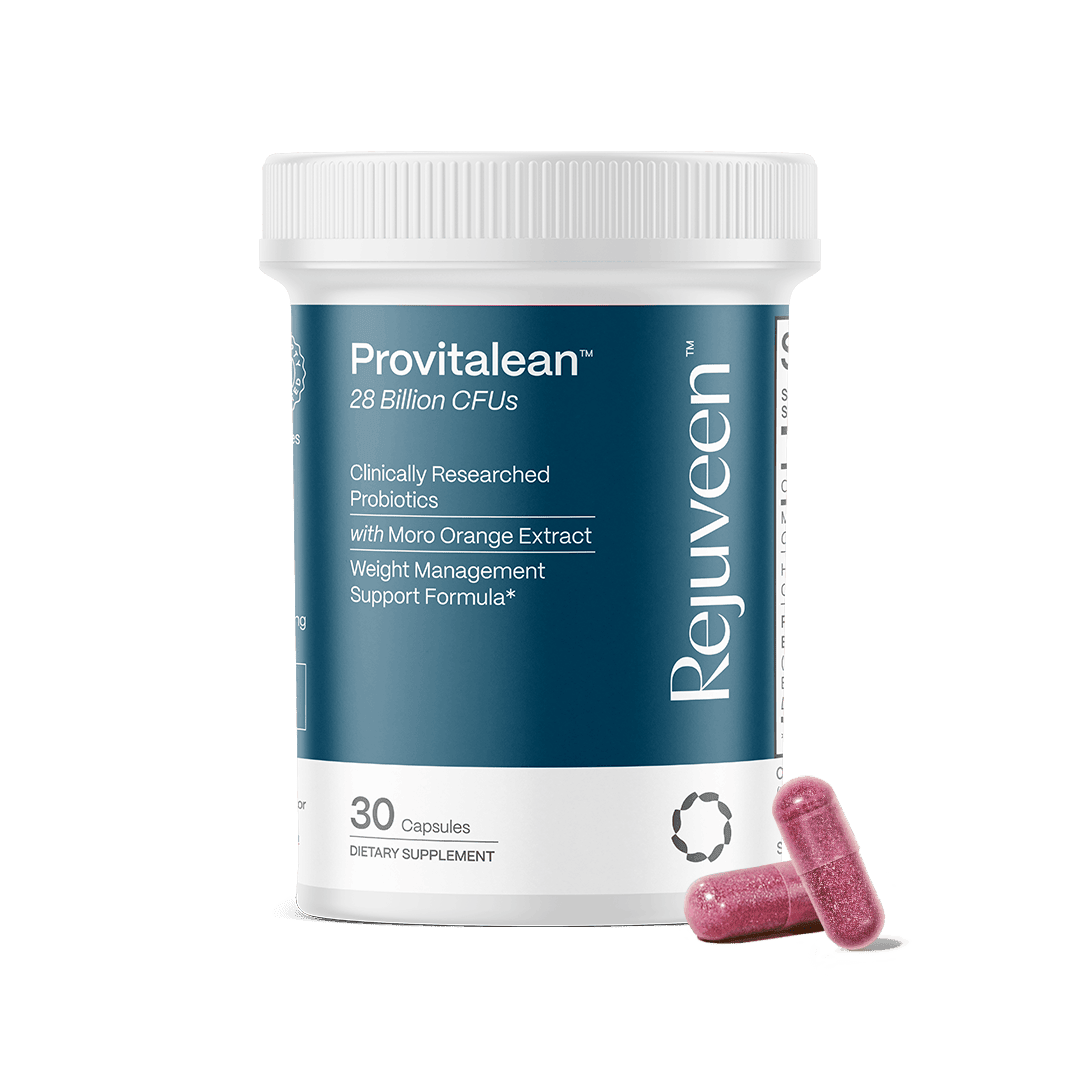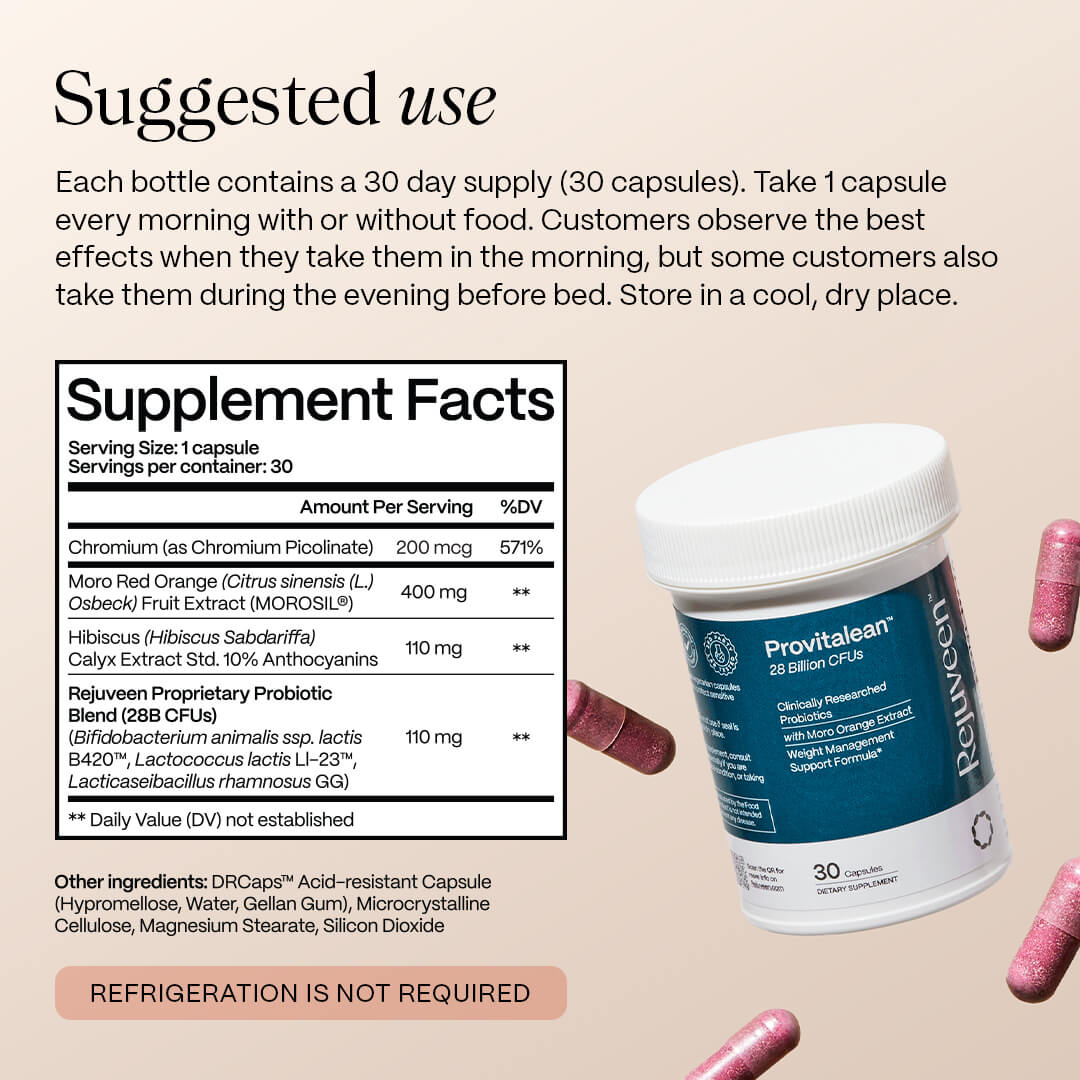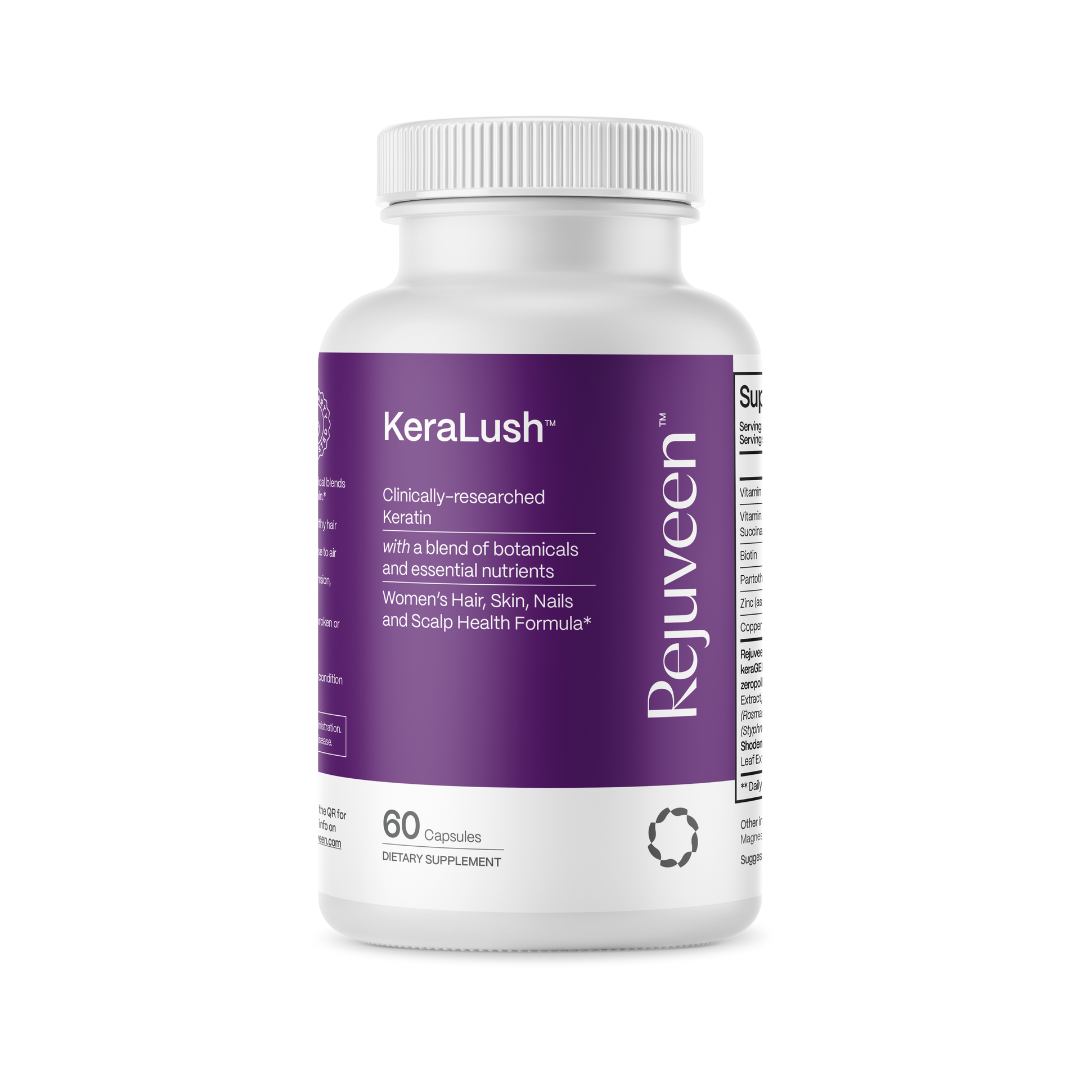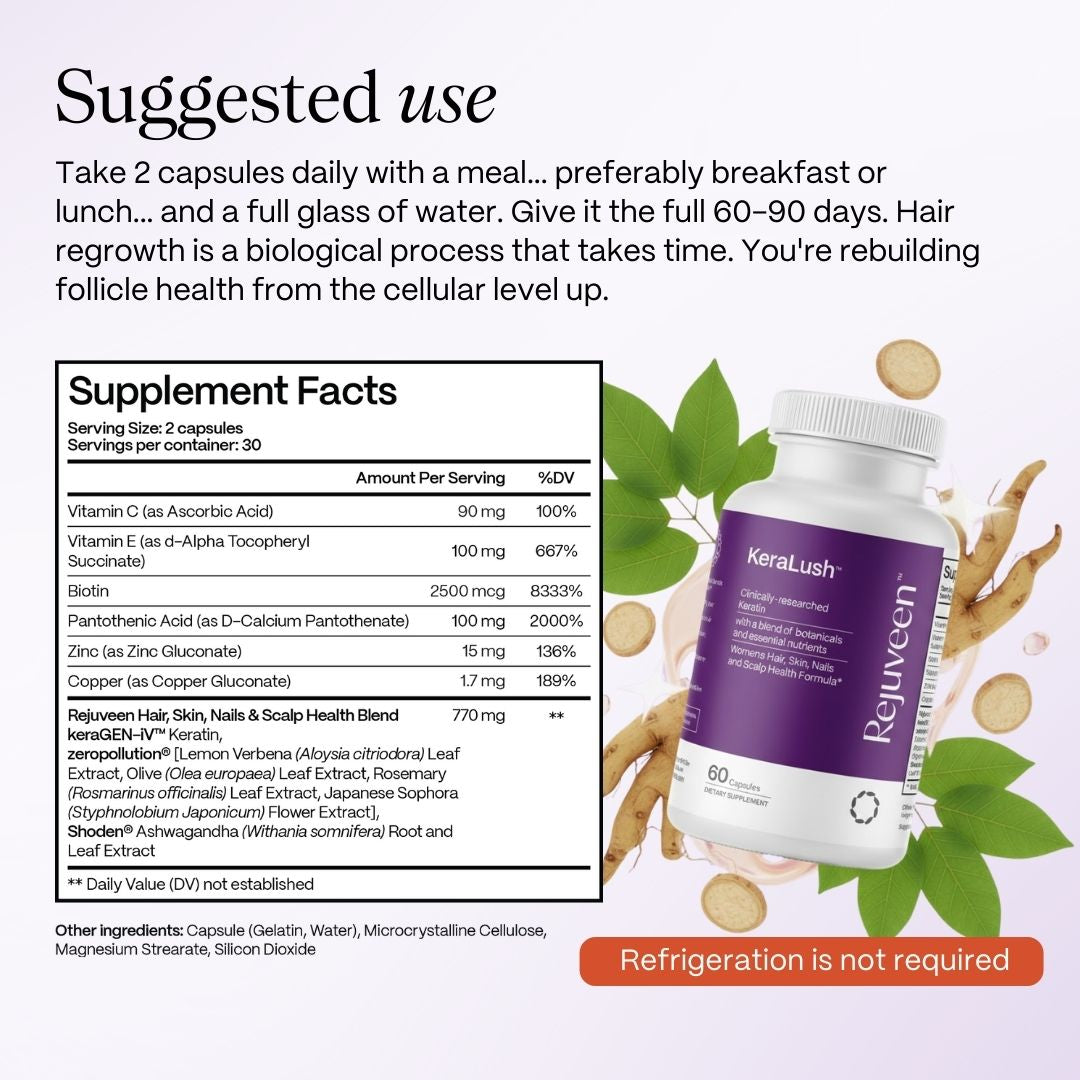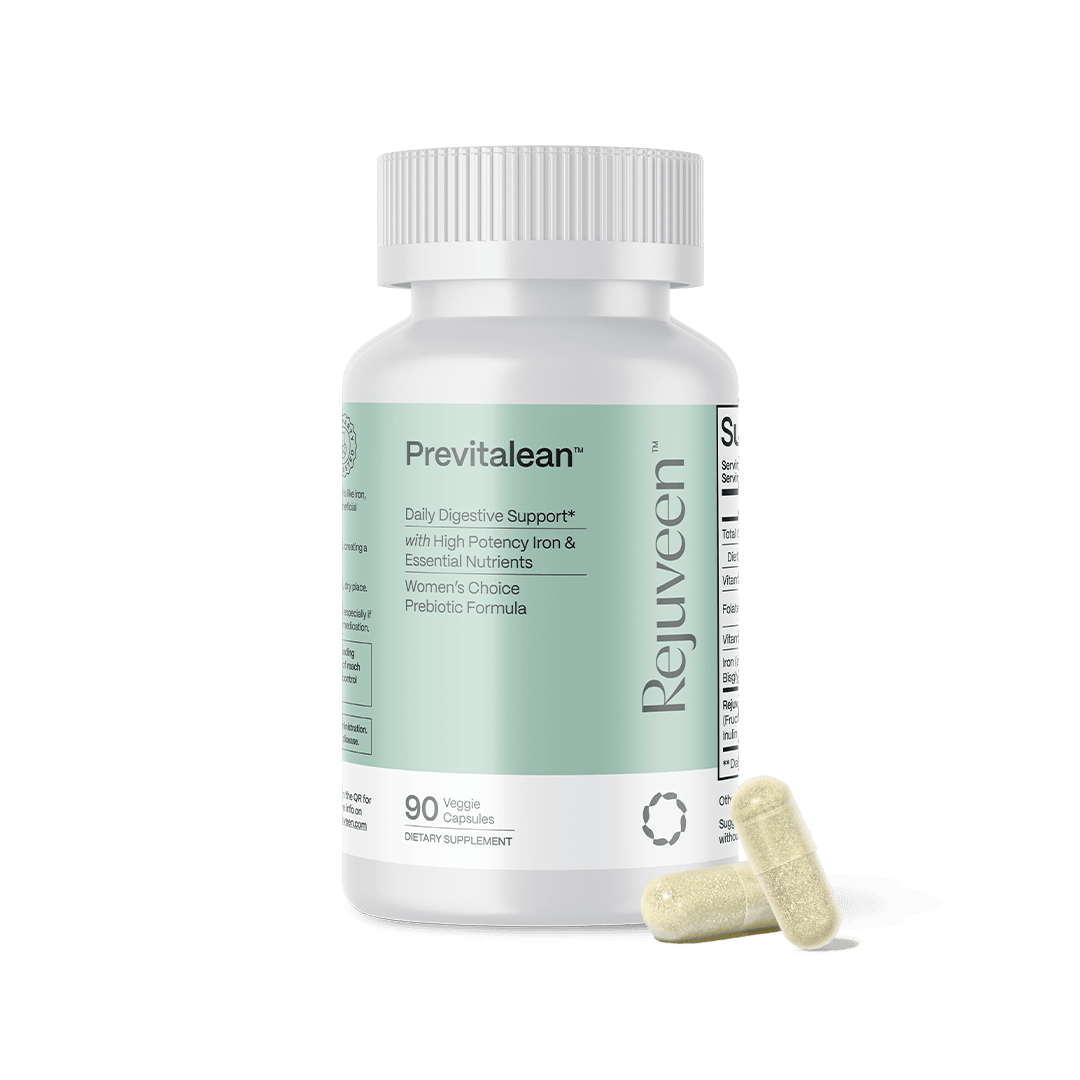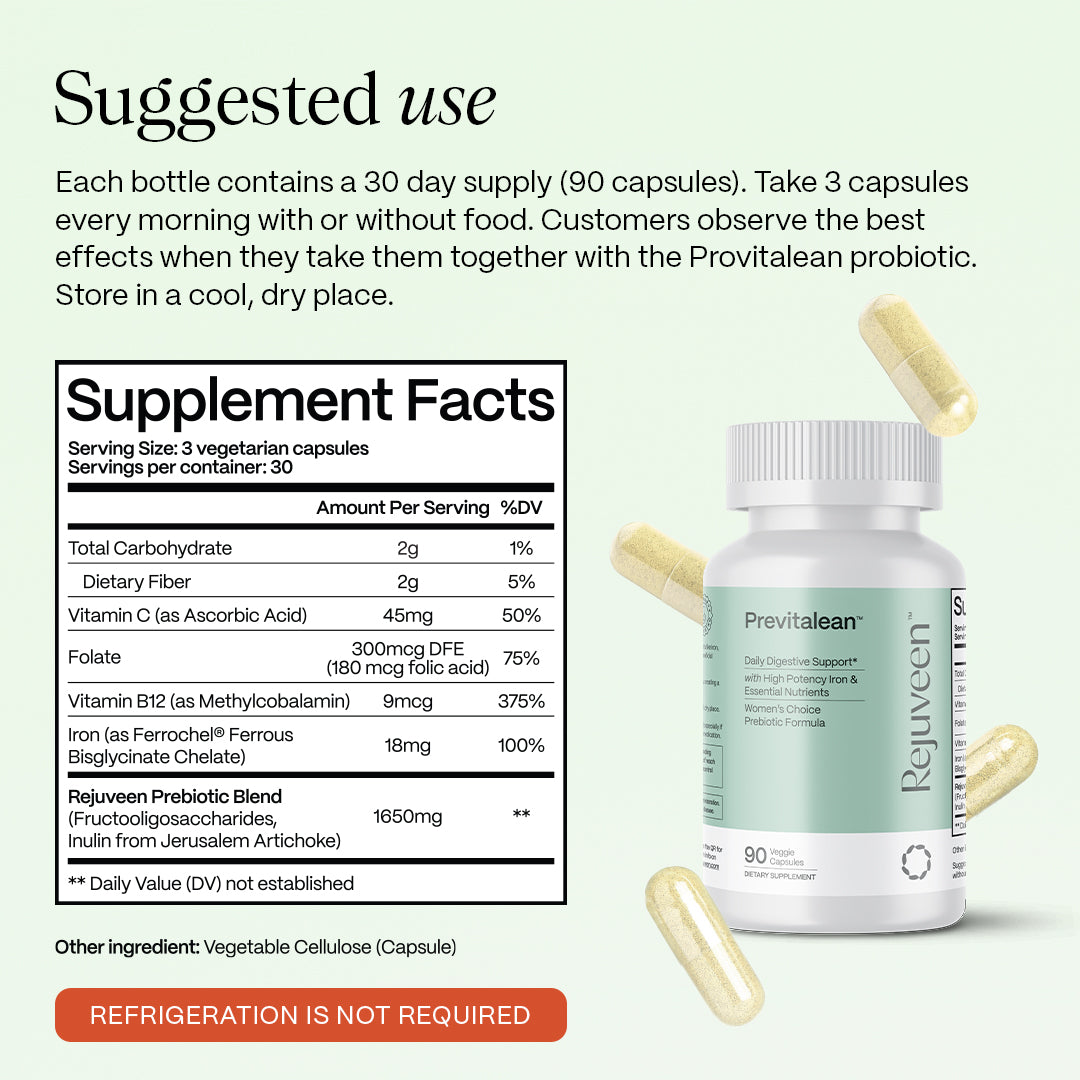Ever had that friend who can demolish a plate of pasta, a large pizza, and still feel fantastic, while you're over here feeling bloated after eating a single chocolate chip cookie?
(We've all been there, and yes, it's totally unfair!)
Now, you need not be green with envy any longer because today, we unveil the secret behind their iron-clad digestion: prebiotics.
What Are Prebiotics?
Now, prebiotics is just a fancy word for certain types of fiber that your body can't digest.
But before you write them off as useless, here's the plot twist – while you can't digest them, the good bacteria in your gut absolutely love them.
They’re basically gourmet meals for the probiotics in your gut!
When they feast on prebiotics, they produce something called short-chain fatty acids (SCFAs). These SCFAs are like the conductors of your gut orchestra, helping to:
- Maintain a healthy gut environment
- Support your body's natural detoxification process
- Aid in weight management
- Boost nutrient absorption
They even help keep your bowels regular, making sure you spend less time on the porcelain throne and more time living life.

Why Your Bowels Love Prebiotics
Here's where prebiotics comes in.
When you feed your gut bacteria these prebiotic fibers, they break them down through fermentation, creating those beneficial SCFAs we mentioned earlier.
These SCFAs do something remarkable: they help maintain the perfect environment in your gut, supporting regular bowel movements and helping prevent both constipation and diarrhea.
That’s not all. Some people who swear by prebiotics often sing praises on how much easier it is to manage their weight while on a fiber-fueled diet, and for good reason.
The Weight Loss Connection
- Appetite Control: Prebiotics help produce hormones that signal fullness to your brain
- Blood Sugar Balance: They help slow down digestion, preventing rapid spikes in blood sugar
- Metabolism Support: The SCFAs produced can help boost your metabolic rate
- Inflammation Support: They help maintain a healthy inflammatory response in the gut

How To Get Your Daily Dose of Prebiotic
Ready to give your gut what it's craving?
Here are some delicious ways to incorporate more prebiotics into your diet:
- Jerusalem artichokes
- Chicory root
- Onions
- Bananas (slightly underripe)
- Oats
- Apples
However, if you’re looking for a different way to up your prebiotic intake, we recommend adding a high-quality prebiotic supplement like Previtalean to your diet. Ensure that the supplement:
- Contain well-researched prebiotic fibers
- Are free from unnecessary additives
- Come from reputable manufacturers
- Have clear dosage instructions
The Bottom Line
Your gut health doesn't have to be a mystery.
When it comes to gut health, it's not just about what you eat – it's about feeding the trillions of tiny helpers that keep your digestive system running smoothly. Why not give them exactly what they're craving?
If you need an all-natural, prebiotic supplement that feeds your gut with all the fibery goodness we’ve talked about, we recommend adding Previtalean into your diet.
Want to learn more about supporting your gut health? Check out our other articles on digestive wellness and stay tuned for more tips on maintaining a healthy, happy gut!


